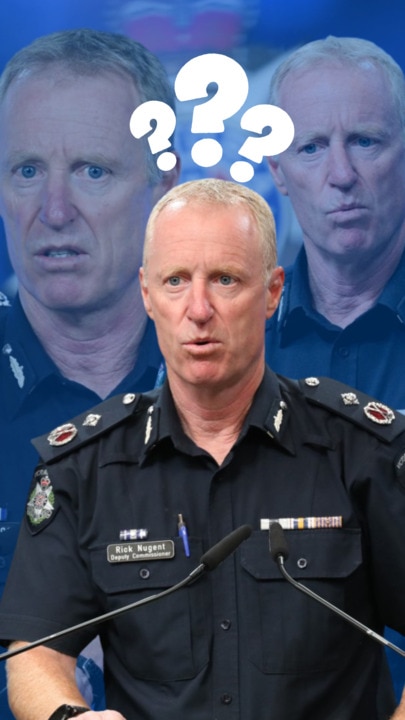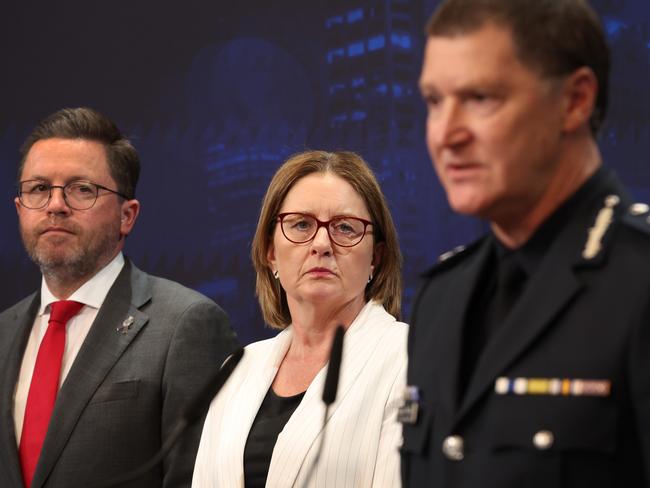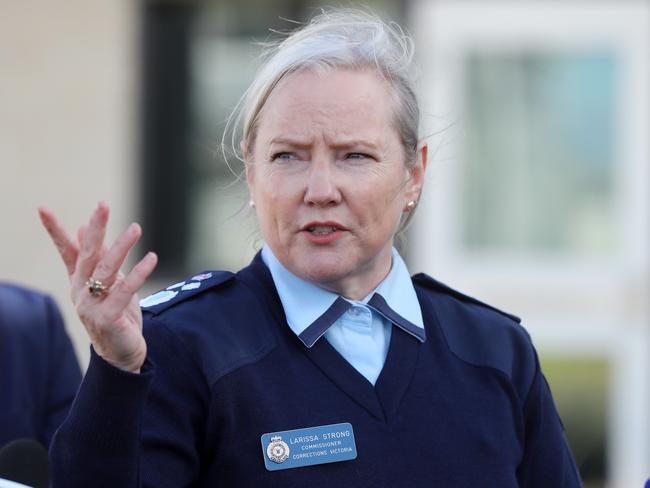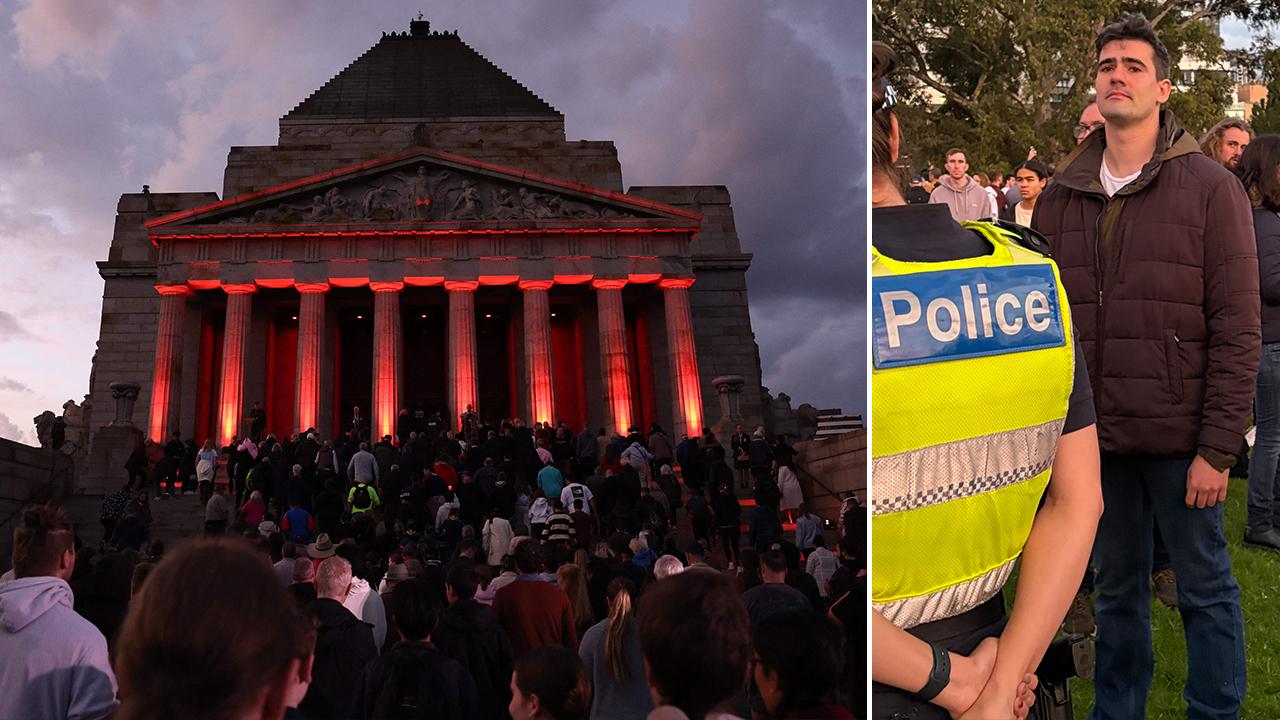Shannon Deery: Leaving some of Victoria’s top jobs vacant a failure of governance
Acting chiefs are running Victoria’s police, ambulance and emergency management departments. This means decisions are delayed, policies are stalled and morale among rank-and-file employees plummets.

Opinion
Don't miss out on the headlines from Opinion. Followed categories will be added to My News.
There’s a worrying dearth of leadership in Victoria.
Acting chiefs are currently running Victoria Police, Emergency Management Victoria and Ambulance Victoria.
New leaders are at the helm of both the Department of Health and Department of Jobs, Skills, Industry and Regions, following the sudden resignation of uber-experienced bureaucrats.
Over at the rebadged integrity agency the Victorian Inspectorate – now Integrity Oversight Victoria – Cathy Cato has been acting inspector since January.
This week prison workers will vote on a no-confidence motion in Corrections Victoria boss Larissa Strong.
Strong is under pressure over claims of weak leadership that has seen an increased threat to worker safety. As reported in this paper on Saturday, prison guards are being attacked, sexually assaulted, and hospitalised by the state’s most dangerous criminals in alarming numbers.
Official Corrections Victoria data shows 442 attacks have been recorded in the past 12 months, including 10 sexual assaults on staff and six attacks so serious guards were admitted to hospital.
Strong – who has been in the role since 2020 – is under fire for her response to staff safety concerns, among other issues. She’s known among staff for an “abrasive” personality, and for a reported lack of understanding of what frontline workers are facing daily.

Corrections sources expect an overwhelming majority of workers to back a no-confidence motion. If that were to happen, the Allan government would have no option but to intervene to move Strong along.
The government set the ground rules on this matter when they reneged on a plan to extend the contract of former Victoria Police boss Shane Patton.
Patton himself faced a devastating no-confidence motion in which almost 13,000 police – or more than 70 per cent of the force – voted against his ability to hold the top job.
The government was swift in its reaction to move him on, fundamentally politicising the appointment, and causing an unprecedented leadership crisis at Victoria Police.
The lack of leadership across Victorian agencies shows a troubling pattern that threatens not only stability, but public trust in such critical institutions.
Interim appointees charged with filling the leadership vacuum have not only limited authority but a limited mandate to run the agencies they’re nominally in charge of.
It leaves them rudderless.
You might ask, so what?
But such leadership gaps have real-world consequences.
Key decisions are delayed, policies are stalled, important reforms are shelved, and morale among rank-and-file employees plummets.
Without leadership, who is shaping the culture of governance or setting the tone for accountability?
Progress grinds to a halt and agencies are left spinning their wheels.

It’s become a bit of a fad recently for aggrieved workers to try on a no-confidence motion to negotiate better rights and get their way.
This comes as the chasm widens between leaders and rank-and-file staff over differences of philosophical ideologies borne out of actual hands-on experience and idealised versions of how things could be.
Paramedics kicked things off last year, with a no-confidence vote leading to the resignation of chief executive Jane Miller in August last year. She has not been replaced.
Ambulance response times are at worrying lows, morale is poor and the service is the subject of a potentially damning parliamentary probe.
Police followed earlier this year, in their vote that killed off the chief commissioner. He has not been permanently replaced. We remain in the grip of a crime crisis with an under-resourced police force about to embark on a once-in-a-generation cost-cutting restructure.
Prison workers are the latest to try the move. Sources say the handcuffing of prisoners has become a major issue of contention between frontline staff who want protection from attacks and management who are more focused on prisoner rights.
If Strong is booted, she will go at a critical juncture in which the state’s prison population is expected to increase by up to 20 per cent by Christmas on the back of the Allan government’s toughened bail laws.
And what is the government doing to address the problem?
There certainly appears no rush to fill longstanding vacancies.
Rather than urgent campaigns to fill positions and transparent timelines for appointments, key agencies remain in limbo. And with key roles unfilled, damage is done not only to the institutions themselves, but our trust in them.
At a time when crime is as high as our debt level, and public confidence in the management of the state is at record lows, Victoria can’t afford to be leaderless.
A lethargic response from government on filling key positions is more than bureaucratic oversight.
It’s a failure of governance.



